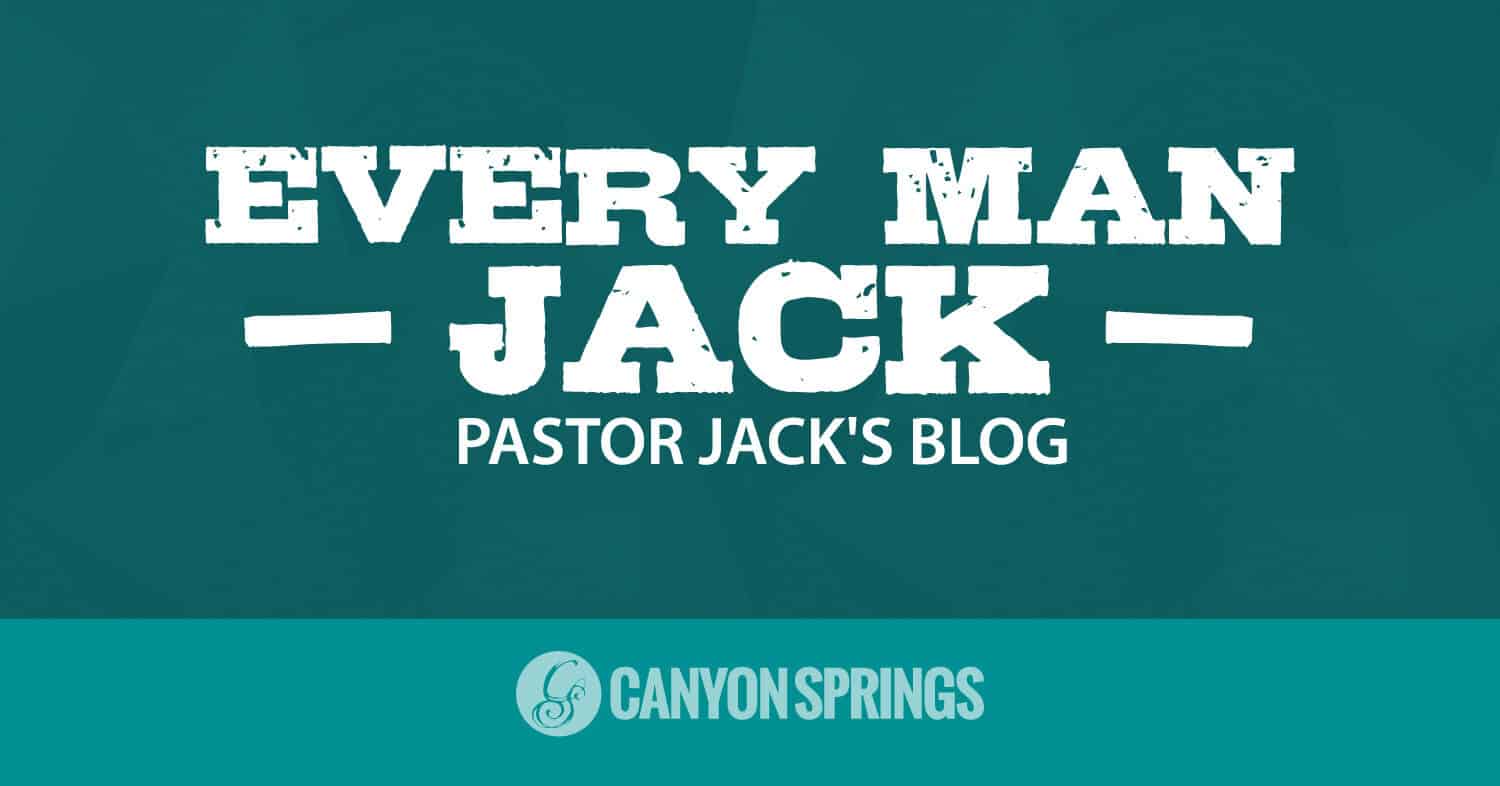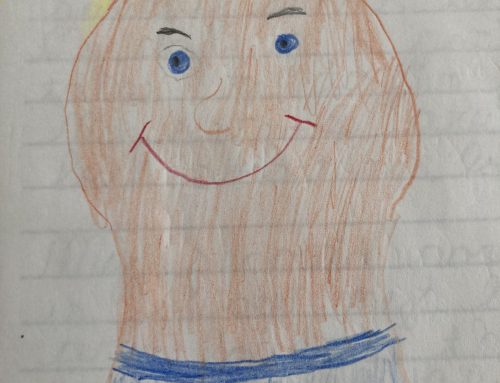When you read the title of this post did Dr. Seuss come to mind? If it did, it was by design. I recently met with the elders at my church, Canyon Springs in San Diego, to discuss our goals as a church for 2017 and I don’t know if the meeting had gone on too long and we were getting punchy or what, but what we came up with was that we want to reach one here, one there, one everywhere. As we started to talk about this idea I couldn’t help but notice that it sounds a little like a Dr. Seuss book.
If you’ve visited this blog lately you know that we added a new family member recently, and since our daughter Daphlie is just moving to the states from Haiti we are working on her English, which means that I get to do one of my favorite things as a dad: I get to read to my kid in bed. I love that. Right before I tuck her in, we read a story. I’ve read Paddington and Tarzan. She picked out a book called I Love My Daddy; that was awesome. But my favorite books are Dr. Seuss books. Reading those books reminds me of reading when I was a little boy. It also brings back great memories of when I would read to my other kids when they were small. My prayer is that someday I will be able to read those books to my grandkids.
As I have read Dr. Seuss it has struck me how much these books have become part of our fabric as a country. We’ve all read these same books. In fact in 2001, “Publishers Weekly” released a list of the best selling hardback children’s books of all time and Dr. Seuss had 16 of the top 100. He outsold the next closest author by 40 million books. And he has not stopped this century. Even though Dr. Seuss died over 25 years ago he’s still going strong. In 2013 he sold 4.8 million books, a 50% increase on the 3.2 million he sold in 2010.
Great Moral Truths as Told By Dr. Seuss
As I’m sitting in Daphlie’s bed and reading all these stories again, I’m beginning to appreciate the depth of his writing. Dr. Seuss famously stated that he never began writing a story with a moral in mind. “Kids can see a moral coming a mile off,” he said. But you can’t escape the fact that his books are filled with bits of truth and life lessons that we all need to be reminded of.
Dr. Seuss on commitment:
“I meant what I said and I said what I meant. An elephant’s faithful 100%.”Dr. Seuss on differences:
“The day they decided that Sneetches are Sneetches / And no kind of Sneetch is the best on the beaches.”Dr. Seuss on the commercialization of the holidays:
“What if Christmas, doesn’t come from a store? What if Christmas perhaps means a little bit more?”Dr. Seuss on standing up for your rights:
“I do not like green eggs and ham. I do not like them, Sam-I-Am.”Here’s my favorite:
“Even though you can’t see or hear them at all,
A person’s a person, no matter how small.”
No Matter How Small
These words have incredible meaning for all of us and it had great meaning for Dr. Seuss. When Dr. Seuss penned that it marked a 180-degree shift in Dr. Seuss’ life and attitudes. I’ll get to that story later but that statement speaks of a lifestyle shift we should all spend some time thinking about because that statement is not only a good idea, but it’s also a call from God. In the last days of Jesus’ life, he made a statement very similar to that one, but Jesus says it with more force. More power. More conviction. The words when Jesus speaks them are not optional; they are foundational.
- It doesn’t matter how small the person is…
- Or how small their position is…
- Or how small their influence is…
- Or how small their bank account is…
- Or how little popularity they have.
Those are the people that God loves. Those are the people that we are called to love. The people that are unseen. The people no one is listening to. That’s not just a line in a kid’s book; it’s our mission.
The Word
Near the end of Jesus’ life, he had some messages for the people who were closest to him. We can find them in Matthew 25 and like He does often when He really wants to make sure that we understand something important, he tells a story:
35 For I was hungry and you gave me something to eat, I was thirsty and you gave me something to drink, I was a stranger and you invited me in, 36 I needed clothes and you clothed me, I was sick and you looked after me, I was in prison and you came to visit me.’ 37 Then the righteous will answer him, ‘Lord, when did we see you hungry and feed you, or thirsty and give you something to drink? 38 When did we see you a stranger and invite you in, or needing clothes and clothe you? 39 When did we see you sick or in prison and go to visit you?’ 40 The King will reply, ‘Truly I tell you, whatever you did for one of the least of these brothers and sisters of mine, you did for me.’ 41 Then he will say to those on his left, ‘Depart from me, you who are cursed, into the eternal fire prepared for the devil and his angels. 42 For I was hungry and you gave me nothing to eat, I was thirsty and you gave me nothing to drink, 43 I was a stranger and you did not invite me in, I needed clothes and you did not clothe me, I was sick and in prison and you did not look after me.’ 44 “They also will answer, ‘Lord, when did we see you hungry or thirsty or a stranger or needing clothes or sick or in prison, and did not help you?’ 45 “He will reply, ‘Truly I tell you, whatever you did not do for one of the least of these, you did not do for me.’ Matthew 25:35-45
This story can make it seem like if you do the right things you’ll get into heaven, but if you don’t do enough good things you won’t. I read it differently. I think what Jesus is saying is that my people will have my heart. My people will care about what I care about. And this is what I care about. The least. The small.
The Least is the Small
Do you know what the word “least” means in this verse? Some of you have probably already figured it out. The exact definition of the word least in this passage is the word “small.” Remember: “A person’s a person no matter how small.” This word covers a lot of different kinds of small:
- It means small in size.
- Small in importance.
- Small in authority.
- Small in rank.
- Small in the estimation of men. (That’s my favorite).
Turns out there are a lot of ways to be least too:
- You can be the least popular.
- Or the least influential.
- Or the least wealthy.
- Or the least likable.
What you do for the least is important. In fact, it’s very important. When Jesus left the world he told us this is what we are to be about: Our job is to care for the least. To reach out to them all because…“A person’s a person no matter how small.”
Name Dropping
This is a global shift for us. Most of us spend our life trying to get away from small. We don’t want to be the least. We want to be the most. The best.
- The most influential.
- The most athletic.
- The most popular.
- The most worthy.
To get to that spot we need to align ourselves with people who are the most and the best, not the smallest and the least. Right? We want to hang out with the most popular crowd. We want to rub elbows with the most successful. This just comes natural to us.
Many of you know I have a wedding business and this is the time of year when I’m doing a lot of consultations with couples. When I do these consultations there is one wedding I bring up more than any other wedding. It’s the wedding of these guys:

There a handsome couple don’t you think? But that’s not why I bring them up. I mention them because that’s Jamal Mosely, and he’s one of the coaches for the Dallas Mavericks. I think I will always remember that wedding and not just because that guy is sort of famous. I showed up early and as I waited for the wedding to start, guess who else showed up?
- Byron Scott
- Luke Walton
- Michelle Wie
- DeAndre Jordon
This wedding was star studded. I drop that wedding in as many wedding consultations as I can. Way more than this wedding:

That one took place at Souplantation. The ceremony was in the back room and the reception included all-you-can-eat soup and salad and soft serve ice cream. It was amazing. I’ve tried to talk my daughter into that venue for her wedding but for some reason, she’s not interested.
As a people, generally speaking, we aren’t attracted to the least. Our first thought isn’t to talk about the small. We want to talk about the most famous person we know and the most influential person. We want to rub elbows with the brightest and best. Those are the people who make it on our resumes. It’s our nature. So you can see that Jesus is making a radical statement in this story. He says go for the least. Doesn’t matter what you’ve done for the best. We all cater to the best. You should go for the least.
Jesus Loves The Small
Jesus isn’t asking us to do anything differently than what he did. Every day that Jesus walked this earth, he was all about the least:
- Jesus prioritized little children. He valued them in a society that didn’t.
- Jesus honored women in a culture that viewed them as second class.
- Jesus told us to take care of widows and orphans. That’s how you will be judged.
- He told us to care for the homeless and the hungry.
- Jesus lived in a culture that deemed certain races as lower than others. Jesus told us to love them all, but pay special attention to the small.
This is totally counter to our human nature. But there are some advantages to going small and here’s just one: There is no line when you care for the small.
- There’s no line to feed the hungry.
- There’s always room to teach Sunday school.
- Youth ministry never has enough people, especially Christian men, to serve.
- You never have to wait to reach out to the someone at work.
When you fight to be big there is always a line. There is always competition. If you get to the place where you are on top, there will always be someone trying to knock you off your pedestal. But that’s not true if you try to care for the small. There is always opportunity when you look out for the least.
My challenge to you today is simple: look for the small. They are everywhere.
- You can find the small in Sunday school: Every week they come to us in need of a hug and attention.
- You can find the small in your neighborhood: They are dressed as single moms and kids who are neglected and neighbors who have lost a loved one.
- You can find the small at work: They are the people that no one wants to hang out with; the boss that has isolated himself; the co-worker that is a little rough around the edges.
- You can find the small in your own family: It’s the brother who has gone astray; the child who is grumpy and distant; the spouse who made a mistake.
- You can find the small on the street: They are holding that cardboard sign. Don’t just roll down the window and give them your change. You may be encouraging an addiction. Take the time to drive through and get them a meal.
- You can find the small in prison: They just need a visit by someone to give them hope. Is that someone you?
Our world is full of the small. If you need some ideas of where to find the small go to canyonsprings.org/outreach. There are all kinds of ways you can make a difference.
Dr. Seuss Revisited
This idea is going to take a change in the way you think. It did for Dr. Seuss. Let me explain. I want to close by reading a line from the book Horton Hears a Who that I’m guessing you haven’t ever read. It’s stuck in the front with the copyright information and the print date.
It reads simply: “The book is dedicated Nakamura.”
You may or may not have known that from 1941-1943, Theodor Seuss Geisel, a.k.a. Dr. Seuss, drew over 400 political cartoons for the newspaper “PM.” Among them were racist portrayals of Japanese people with slant-eyes, pig-noses, and coke-bottle glasses. I would post some of them here but frankly they are too offensive for a pastor’s blog.
Then in 1953, Dr. Seuss visited Japan to research an article for Life magazine. He wanted to write about the effects of the war and post-war efforts on Japanese children. With the help of Mitsugi Nakamura, Dean of Doshisha University in Kyoto, Seuss went to schools all over Japan and asked kids to draw what they wanted to be when they grew up. What Seuss saw made a deep impression, and when he returned to America, he started work on Horton Hears A Who! The book is dedicated to Nakamura. He said in an interview, “Japan was just emerging, the people were voting for the first time, running their own lives—and the theme was obvious: ‘A person’s a person, no matter how small,’ though I don’t know how I ended up using elephants.”
Our job is to care for the least.
To reach out to them all.
Again: “A persons a person no matter how small.”
That person can look like a child. It can look like a homeless person. It can look like an angry boss. It can look like a single mom. It can look like a person you once called enemy, because “a person’s a person no matter how small.”
At our church, we just launched a year long campaign to reach the small. To reach one here, one there, one everywhere. So today I want to end this post with three questions that make one challenge for you and for me:
- Who’s your next one?
- Where can you serve?
- What can you give?
[bctt tweet=”“A person’s a person no matter how small”—Dr. Seuss #CanyonSprings” username=”canyon_springs”]









Leave A Comment